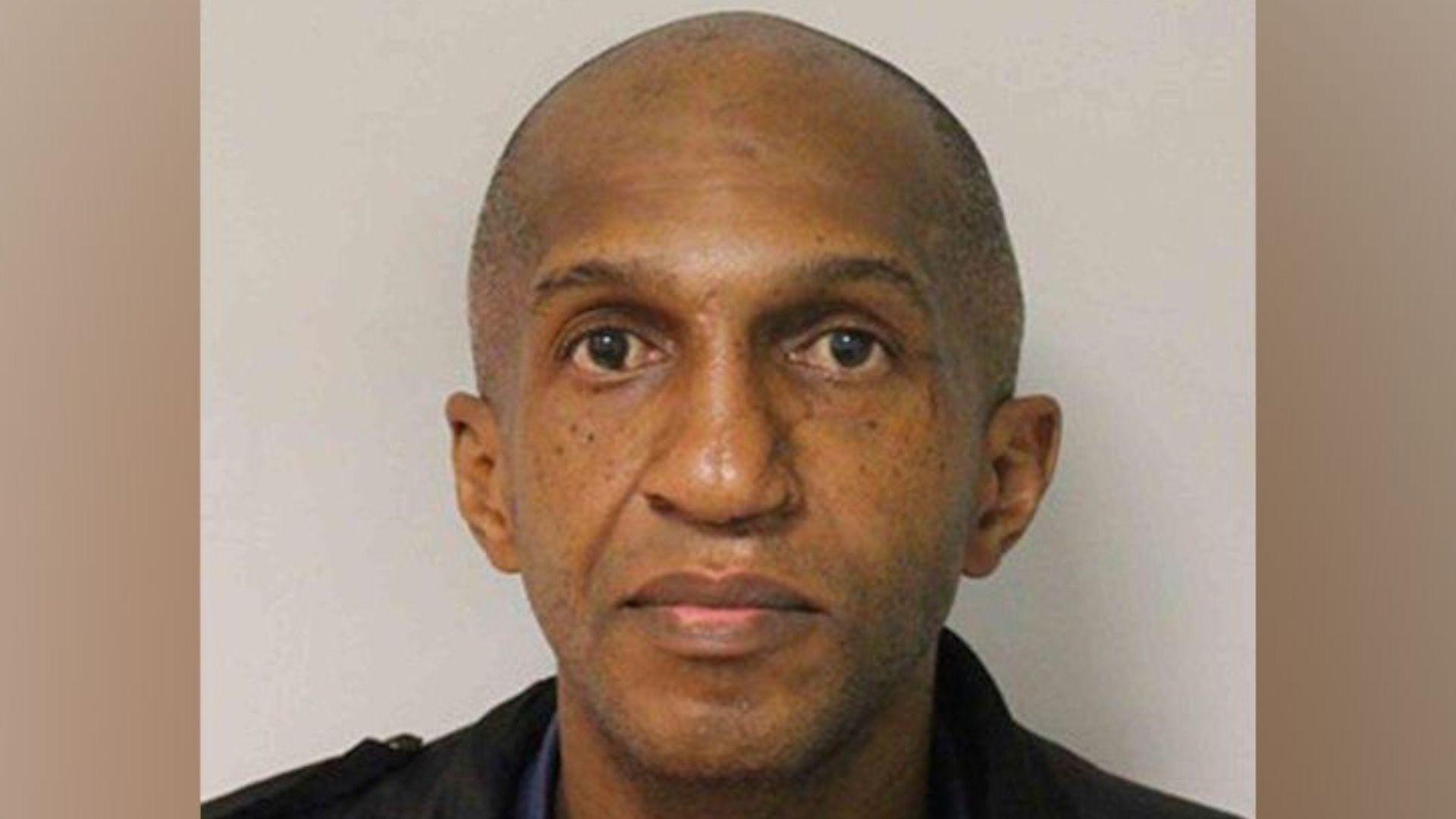'Enormous crisis' warning from homelessness service
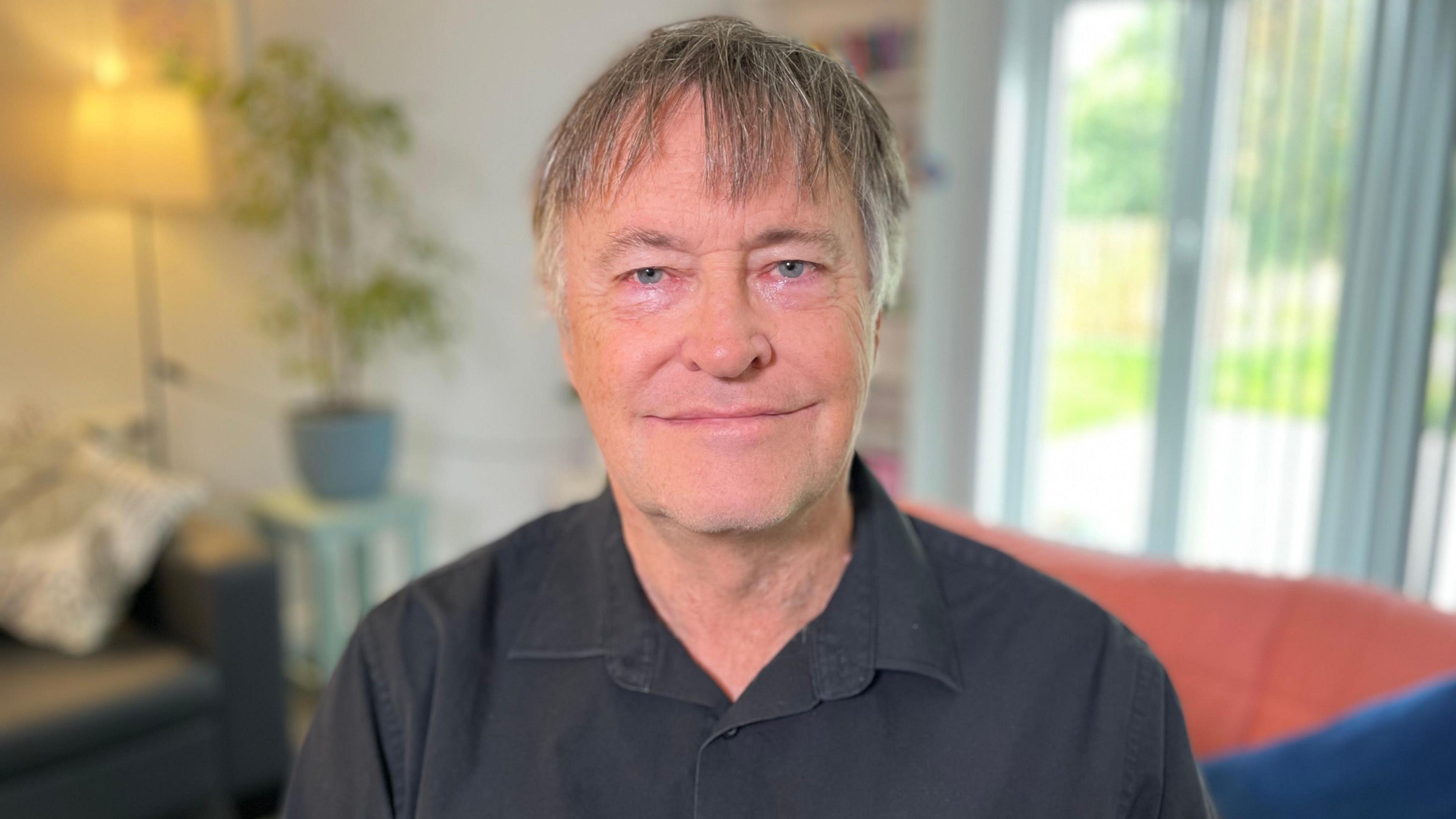
Andrew Redfern has warned that supported housing cannot be delivered safely
- Published
The chief executive of the East Midlands' largest homelessness charity has warned of an "enormous crisis" after years of underfunding.
Andrew Redfern, who is set to retire from Framework Housing Association after 29 years, said services were "frankly not as good as they once were" due to cuts over the last 15 years.
Framework provides supported housing for people who have slept rough or have complex needs, alongside addiction services and street outreach patrols.
Mr Redfern said: "We are working for a time when we're not needed. Sadly that's probably as far away now as it was 29 years ago when I first joined, but that aspiration remains."
Framework, which has its headquarters in Nottingham, accommodates more than 1,400 vulnerable people across Derbyshire, Lincolnshire, Nottinghamshire and Sheffield.
Mr Redfern said rough sleeping "barely existed" in 2010, when investment in support services had created "enormous" cost savings in areas such as criminal justice, health and education.
There were 184 individuals identified as sleeping rough for at least one night during 2010 in Nottingham. That rose to 1,316 by 2024, according to figures from Framework.
Mr Redfern said he was furious about the impact of "absolutely disastrous" years of austerity, adding recent National Insurance rises have made the situation even worse.
"The problems we face are soluble, and there's a real danger in coming to believe that we can't tackle these things [but] actually we can," he said.
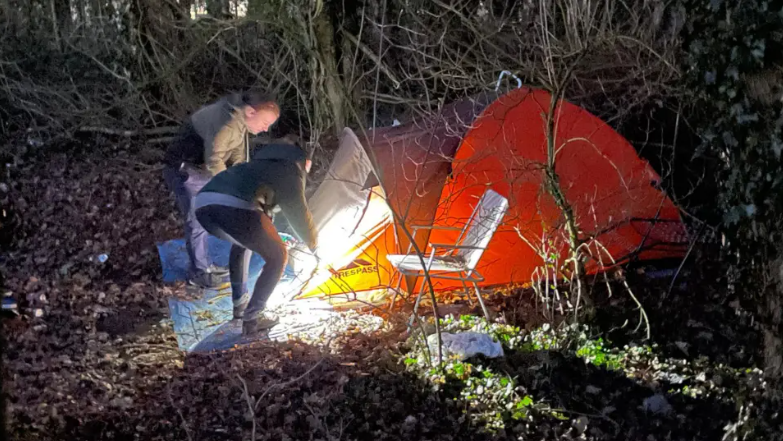
Framework's street outreach teams support people sleeping rough
Mr Redfern said the "supported housing" model used by Framework was vital to tackling homelessness.
Among the facilities offering this service is Grove House in Nottingham, which provides 15 self-contained flats for vulnerable women who have slept rough or have complex needs.
Residents receive round-the-clock help to rebuild their lives and develop the skills needed to move on to independent living.
Mr Redfern described supported housing as a "source of hope" for people dealing with challenges such as addiction, family breakdown, leaving care, temporary Home Office accommodation, or problems with benefits.
But he added: "Services are frankly not as good as they once were because they're chronically underfunded.
"A lot of the supported housing that we used to have, including some very good quality services, have simply ceased to exist.
"What's left is struggling along - it's on its last legs. It can't be delivered safely or effectively. Most supported housing is in a desperate plight."
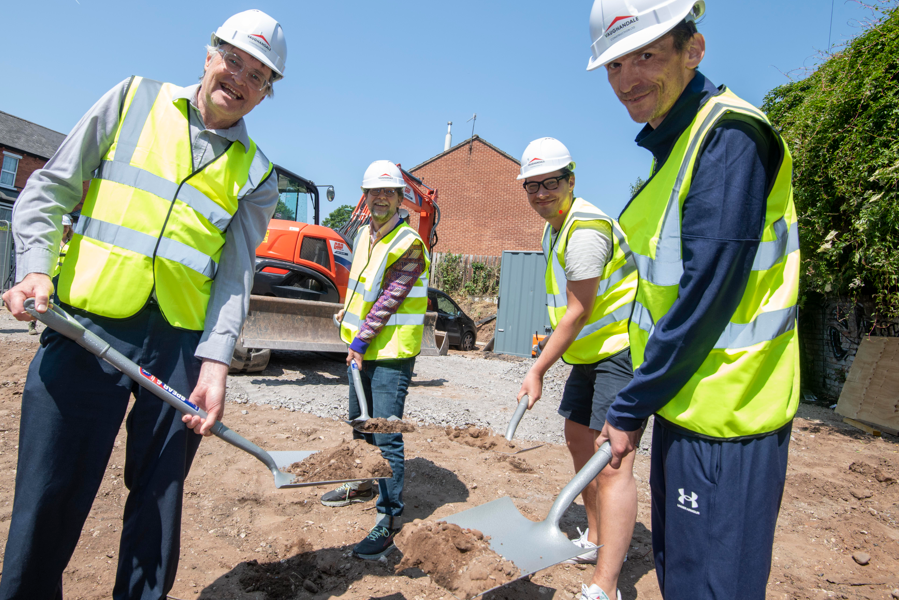
Mr Redfern took part in the groundbreaking ceremony for Akins House, which provides accommodation for rough sleepers
He said he constantly worried about "whether something dreadful is going to happen" because Framework could no longer afford to recruit or retain specialist staff.
"There are always incidents in our services," he said. "People whose lives may be chaotic, who may be involved with drugs gangs or harming themselves or [are] very distressed, and need continual supervision before they can move on.
"We were once able to employ a specialist drugs worker, or a specialist mental health worker or social worker. The question becomes 'is it better to do something that's inadequate or nothing?'"
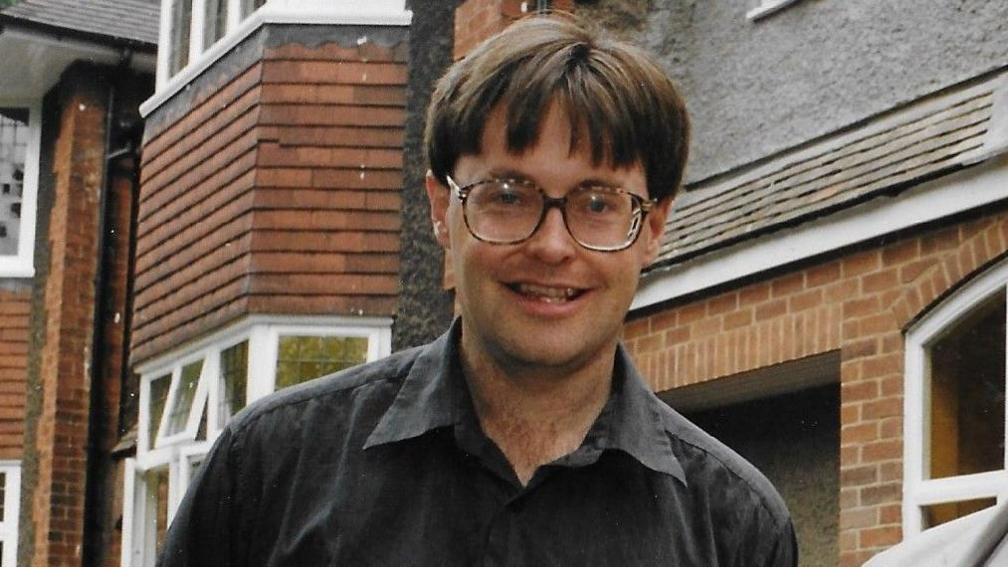
Mr Redfern has been running homelessness services in Nottingham for 29 years
According to new figures collated by the Museum of Homelessness, 1,611 homeless people died in the UK in 2024 - the highest number on record.
Most deaths were linked to suicide or drugs, with Spice and nitazenes becoming increasingly deadly.
Two-thirds of those deaths were of people living in temporary or supported accommodation, while 169 were rough sleeping.
The report recorded 22 deaths in Nottingham, compared with 11 the previous year.
Mr Redfern said it was impossible to quantify how many lives Framework's services had saved over the years.
"It might prevent a drug overdose, it might intervene when one happens, but there's no doubt that lives have been saved," he said.
"I think the number is probably in the thousands rather than the hundreds."
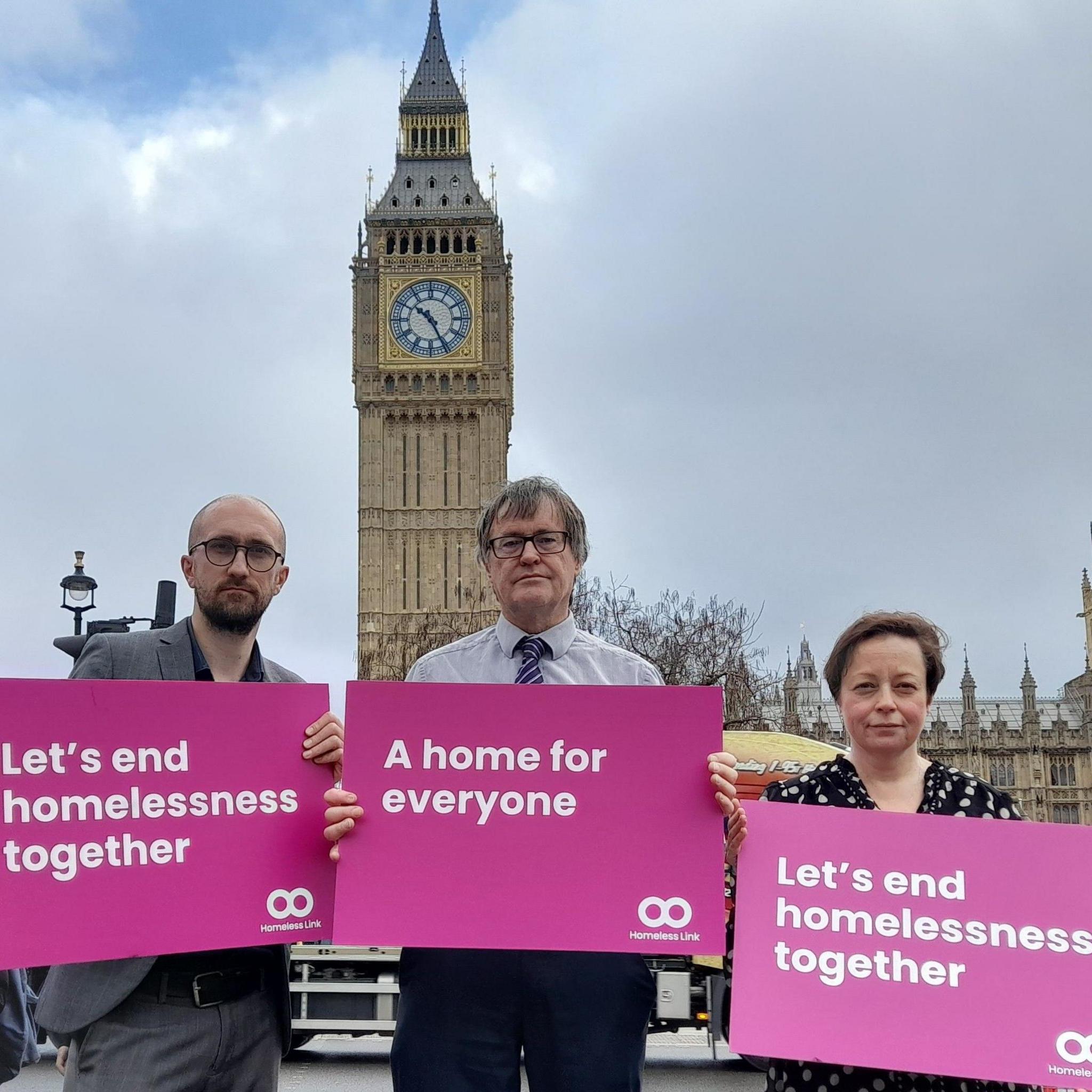
Mr Redfern, centre, will be succeeded in the role by Claire McGonigle, right
The Ministry of Housing, Communities and Local Government said it had invested a record £1bn this year to tackle rough sleeping and homelessness.
It said levels of rough sleeping had more than doubled since 2010, and record numbers of households were now in temporary accommodation - including 170,000 children.
To mark World Homelessness Day on Friday, the department announced an additional £84m in funding for local councils, including £5.3m across the East Midlands.
The new funding will prioritise families in temporary accommodation, helping keep children in education by covering essentials such as food, school travel and laundry.
Housing Secretary Steve Reed said: "Homelessness is a moral stain on our society. Growing numbers of people have been abandoned to sleep rough on the streets and children left in squalid, overcrowded conditions.
"This government will not stand idly by and allow that to continue.
"We will make different choices. That's why we are investing £1bn to give homeless people the security of a roof over their heads and get back on track to end homelessness for good."
Get in touch
Tell us which stories we should cover in Nottingham
Follow BBC Nottingham on Facebook, external, on X, external, or on Instagram, external. Send your story ideas to eastmidsnews@bbc.co.uk, external or via WhatsApp, external on 0808 100 2210.
Related topics
- Published19 February
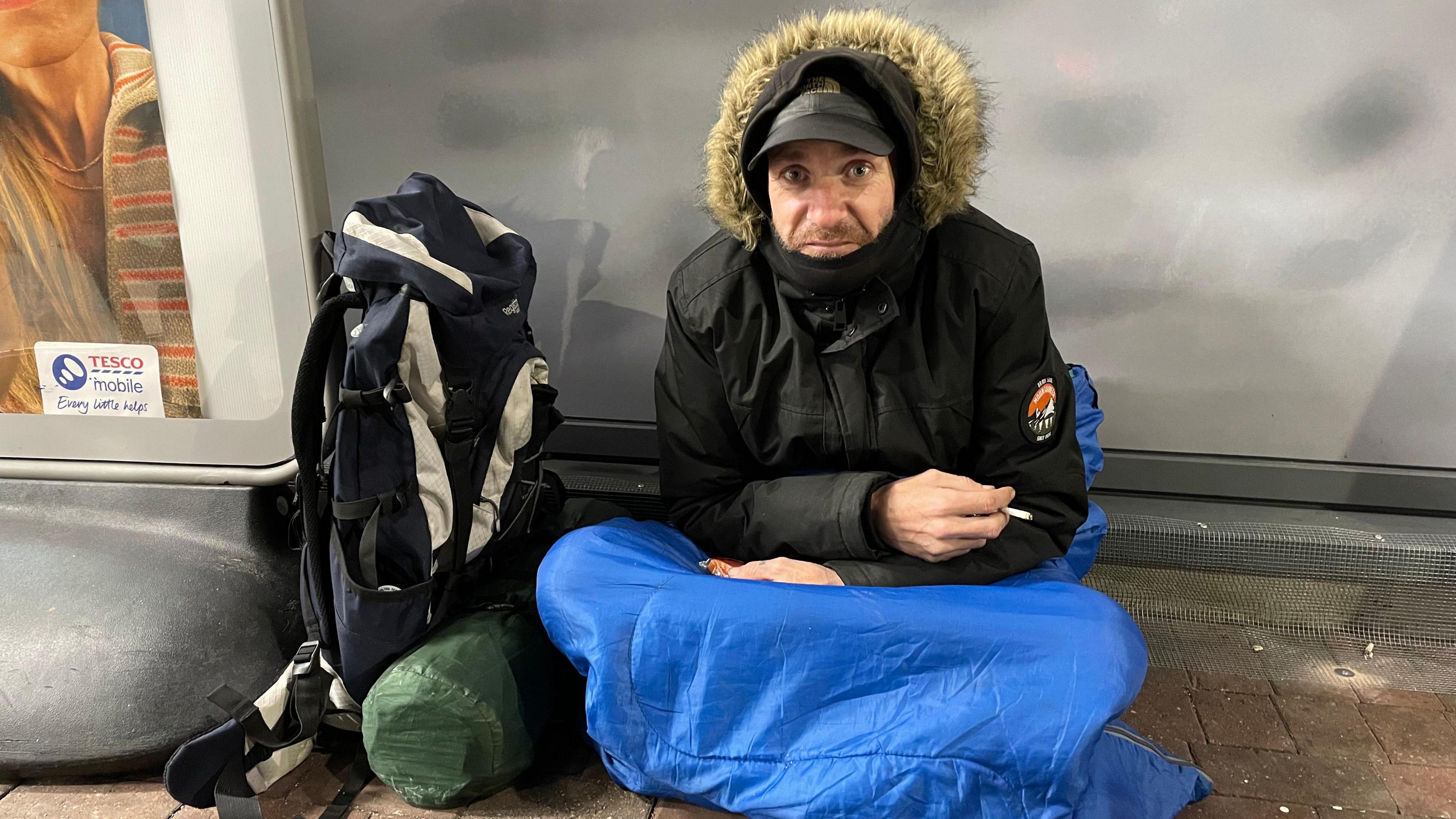
- Published8 October
